No Leave, No Love

Brief Synopsis
Cast & Crew
Charles Martin
Van Johnson
Keenan Wynn
Pat Kirkwood
Guy Lombardo
Edward Arnold
Film Details
Technical Specs

Synopsis
Michael Hanlon, a World War II veteran living in New York, rushes to the hospital when he learns that his wife, Susan Malby Duncan, is in labor. While nervously awaiting the birth of his child, Michael tells another expectant father the story of how he met Susan. Michael begins his tale at the time when he was on a ship returning home from the war: On board the ship, Michael daydreams of his home in Rhodesville, Indiana, and Lucy, the girl he left behind. Before he arrives in the United States, Michael's commanding officer, Colonel Elliott, proud of the fact that Michael received a Congressional Medal of Honor, asks him to go to New York to appear on Susan's "Man from the Armed Forces" radio show. Michael refuses the invitation, but his pal Slinky agrees to impersonate him. Susan, who is both a singer and the mistress of ceremonies, interviews Slinky and surprises him with a live telephone call from Michael's mother, who immediately asks for a private word with Susan. In their conversation, Michael's mother confides that Lucy has left Michael for another man. She then asks Susan to keep Michael in New York for three days until she can come there and break the awful news to her son in person. Susan realizes immediately that Slinky and Michael have tricked her, but she nevertheless decides to honor Mrs. Hanlon's request. As guests of Susan's radio station, Slinky and Michael are placed in a luxurious hotel suite and are given a first class tour of the city's nightclubs. Later, confusion abounds when Susan tries to keep her sponsor, Hobart Canford Stiles, from discovering that Michael and Slinky are staying at the hotel. Another complication arises when a guest at the hotel, the gregarious Russian Countess Strogoff, takes an interest in Stiles and begins a relentless campaign to win his attentions. Following a series of misunderstandings and a free-for-all brawl, Michael and Slinky find themselves in jail. Michael eventually learns that Lucy has left him, but his heart is not broken as he realizes that it is Susan whom he now loves. During a subsequent broadcast of her show, Susan proposes marriage to Michael on the air, and he accepts. As Michael concludes his story about how he met and fell in love with Susan, a nurse enters the waiting room and tells Michael that he is the father of a baby boy.

Director
Charles Martin
Cast

Van Johnson

Keenan Wynn
Pat Kirkwood
Guy Lombardo

Edward Arnold

Marie Wilson
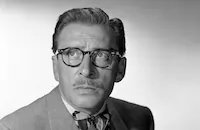
Leon Ames

Marina Koshetz

Selena Royle
Wilson Wood

Vince Barnett
Frank "sugarchile" Robinson

Walter Sande
Arthur Walsh
Joey Preston

Xavier Cugat
The Garcias

Fern Emmett
Walter Soderling
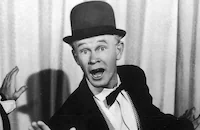
Billy Benedict
Jack Lipson
Angi O. Poulos
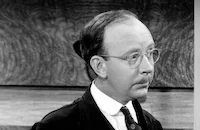
Hobart Cavanaugh
Pat Mcvey
Sid Mercer
Major Sam Harris
Herschel Graham
Reginald Simpson
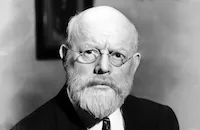
Howard Mitchell
Larry Steers
Harry Denny
Tom Leffingwell
Nolan Leary
Frank Mcclure
Wedgewood Nowell
John Carlyle
Donald Kerr
John Albright
Edward Kilroy
Joe Bernard
Anne O'neal
Minerva Urecal
Frank Moran
Leo Mostovoy
David Dagmar
George Calliga
Ernest Brengk
Arno Frey
Albert Pollet
Rudy Rama
Daniel De Jonghe
Lillian Yarbo
Robert Homans

Howard Mitchell
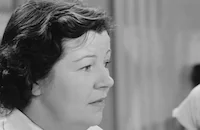
Margaret Bert
Olson Shelton
Fred "snowflake" Toones
Sarah Edwards
Garry Owen
Kate Mackenna
Dick Wessell
Marjorie Davies
Ben Hall
Bert Roach
Nora Cecil
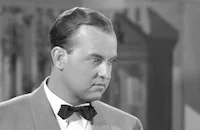
Grady Sutton
Eddie Borden
Katharine Booth
Jean "babe" London

Willie Best
Billy Mitchell
Frank Pershing
Chester Clute
General Sam Savitsky
Phyllis Kennedy
Jack Norton
Ben Moselle
Crew
Preston Ames
Dewey Bergman
Ralph Blane
Thomas E. Breen
John A. Camacho
Paul G. Chamberlain
Jack Dawn
Sammy Fain
Ralph Freed
Cedric Gibbons
Irene
Calvin Johnson
Leslie Kardos
Charles Martin
Fleecie Moore
N. Morales
Conrad A. Nervig
Joe Pasternak
Harold Rosson
Chester W. Schaeffer
Douglas Shearer
Bert Spurlin
Georgie Stoll
Georgie Stoll
Robert Surtees
Kay Thompson
Kay Thompson
Edwin B. Willis

Film Details
Technical Specs

Articles
TCM Remembers Van Johnson - Important Schedule Change on TCM In Honor To Salute VAN JOHNSON
The new schedule for the evening of Tuesday, December 23rd will be:
8:00 PM In the Good Old Summertime
9:45 PM A Guy Named Joe
12:30 AM Thirty Seconds Over Tokyo
2:30 AM The Last Time I Saw Paris
4:30 AM Thrill of a Romance
Van Johnson (1916-2008)
Van Johnson, the boyish leading man whose clean cut, All-American appeal made him a top box-office draw for MGM during World War II, died on December 12 in Nyack, New York of natural causes. He was 92.
He was born Charles Van Dell Johnson on August 25, 1916, in Newport, Rhode Island. By his own account, his early childhood wasn't a stable one. His mother abandoned him when he was just three and his Swedish-born father offered little consolation or nurturing while he was growing up. Not surprisingly, Johnson found solace in singing and dancing lessons, and throughout his adolescence, he longed for a life in show business. After graduating high school in 1934, he relocated to New York City and was soon performing as a chorus boy on Broadway in shows such as New Faces of 1936 and eventually as an understudy in Rodgers and Hart's musical, Too Many Girls in 1939.
Johnson eventually made his way to Hollywood and landed an unbilled debut in the film version of Too Many Girls (1940). By 1941, he signed a brief contract with Warner Bros., but it only earned him a lead in a "B" programmer Murder in the Big House (1941); his contract soon expired and he was dropped by the studio. Johnson was on his way back to New York, but as luck would have it - in the truest Hollywood sense - friends Lucille Ball and Desi Arnaz introduced him to Billy Grady, a lead talent scout at MGM, which was currently Ball's new studio. Johnson was signed up and almost immediately MGM had a star on its hands.
It might have been slow going at first, with Johnson playing able support in films such as Dr. Gillespie's New Assistant and The War Against Mrs. Hadley (both 1942). By 1943 the studio capitalized on his broad smile and freckles and starred him in two of the studio's biggest hits: A Guy Named Joe and The Human Comedy. Those two films transformed him into a boxoffice draw with a huge following, particularly among teenage girls. A near fatal car accident that same year only accentuated the loyalty of his fans, and his 4-F status as the result of that accident created an opportunity for him when so many other leading actors of the era (James Stewart, Clark Gable) were off to war. Johnson was quickly promoted as MGM'sleading man in war heroics and sweet romancers on the big screen: The White Cliffs of Dover, Thirty Seconds Over Tokyo (both 1944), Thrill of a Romance, the episodic Week-End at the Waldorf (both 1945), and a musical remake of Libeled Lady entitled Easy to Wed (1946).
Hits though these were, it wasn't until after the war that Johnson began to receive more dramatic parts and better material such as supporting Katharine Hepburn and Spencer Tracy in the political farce State of the Union (1948). other significant roles included the well-modulated noir thriller The Scene of the Crime, the grim war spectacle Battleground (both 1949), the moving domestic drama Invitation (1952) in which he played a man who is paid to marry a woman (Dorothy McGuire) by her father. Before he left MGM, he closed his career out in fine form with the sweeping musical Brigadoon, co-starring Gene Kelly and Cyd Charisse; and the lilting soaper The Last Time I Saw Paris (both 1954) with Elizabeth Taylor.
After he left MGM, the parts that came Johnson's way weren't as varied, but he had his moments in The Caine Mutiny (1954), the beguiling romance drama Miracle in the Rain (1956) with Jane Wyman; and his lead performance in one of the first successful made for-TV-movies The Pied Piper of Hamelin (1957). By the '60s, Johnson returned to the stage, and played the title role in London's West End production of The Music Man. He then returned to Broadway in the drama Come on Strong. He still had a few good supporting parts, most notably as Debbie Reynolds' suitor in Norman Lear's scathing satire on marital differences Divorce American Style (1967); and television welcomed his presence on many popular shows in the '70s and '80s such as Maude, Fantasy Island, The Love Boat and of course Murder She Wrote. There was one last graceful cameo in Woody Allen's The Purple Rose of Cairo (1985), yet for the most remainder of his career, Johnson worked mainly on the dinner theater circuit before retiring from showbiz completely by the mid-90s. He is survived by a daughter, Schuyler.
by Michael T. Toole

TCM Remembers Van Johnson - Important Schedule Change on TCM In Honor To Salute VAN JOHNSON
Quotes
Trivia
Notes
No Leave, No Love was the first film that Charles Martin directed for M-G-M. The picture marked the American screen debut of British singer and actress Pat Kirkwood, who, according to a March 1945 Hollywood Reporter news item, was the first star to arrive in the United States under M-G-M's plan to exchange stars between its American and British studios. The March 1945 news item also noted that Kirkwood received the part that was originally set for actress Ginny Simms, and that the film's male star would be either Van Johnson or Robert Walker.















